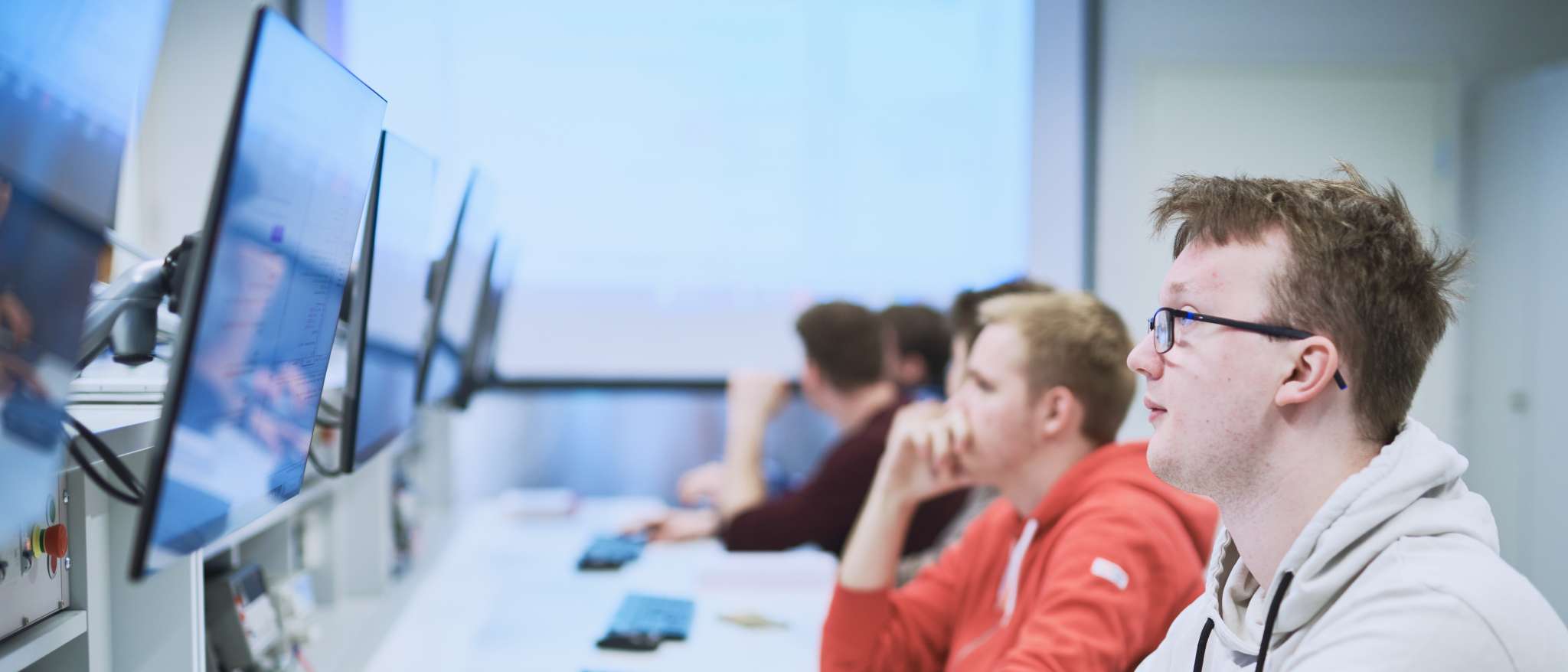Programme
The master’s degree programme Energy Automation Sustainable Engineering (EASE) has a unique, Nordic profile within a rapidly changing field. In this programme, we focus on sustainable change in energy systems from a local and a global perspective. You will learn how analytical and modelling tools can be implemented in supervisory systems for the purpose of improved understanding and more efficient operation. We look at how physics and data can be used to create digital twins and how digital models support sustainable change in engineering design and transition towards a circular economy. The programme prepares you for taking on leadership roles within various fields of engineering and provides you with the skills needed for supporting the transition towards more sustainable engineering.
EASE comprises 60 ECTS with studies lasting one year. Please note that all applicants must have a minimum of two years (24 months) of relevant work experience after the completion of the bachelor’s degree in engineering in order to meet the eligibility criteria. Relevant work experience could e.g. be experience in development, operation, maintenance, software, or a similar field of engineering.
Hybrid studies
The programme is conducted in a hybrid format, with online studies combined with on-site campus weeks at Åland University of Applied Sciences.
Campus Weeks
Week 1: 7-11 September 2026
Week 2: 26-30 October 2026
Week 3: 7-11 December 2026
What you will learn
- skills in designing and implementing analytical tools in supervisory systems
- skills needed for adapting supervisory systems to different applications within engineering, especially within renewable energy systems and smart grids
- how to support changing business models towards including service and maintenance within engineering applications on a general level
- how digital twins can be used for designing and improving automatic systems
- how models of engineering systems can be combined with sensor data for system health management and predictive maintenance
- how to incorporate your understanding in supervisory systems for, e.g., improving operation, automation and control
- different strategies that can be used for controlling generated power in addition to controlling demand in electric grids.
Examples of future positions
After completing this master’s degree, you can take on leadership roles in:
- developing measurement and supervisory systems for engineering applications
- developing automation and production lines, and improving efficiency through use of models and data
- driving sustainable change in engineering systems and support the transition towards a more circular society.
Nordic collaboration that creates a unique programme
In this programme, you can expect top-quality teaching. Our teaching teams possess extensive expertise within the field of energy automation, covering anything from supervisory systems to data analysis. Online learning is combined with on-campus labs, presentations and visits to industrial partners. Industrial partners include Inficon, Optinova, Vind.ax and OX2. You will get a unique opportunity to make use of highly equipped and state-of-the-art facilities – physical and digital – on Högskolan på Åland’s campus in Mariehamn.
There is also an extensive Nordic network specifically for the field of this programme. You can expect to have possibilities for collaboration and joint projects with Mälardalen University in Sweden and programmes in Sustainable Energy Systems, Intelligent Embedded Systems, and Robotics, and with Aalborg University in Denmark and programmes in Advanced Power Electronics and Offshore Energy Systems.
Flexible online studies combined with inspiring on-campus weeks
Introductory sessions are held online and lectures are available as a mix of pre-recorded, audio-commented presentations and live online sessions. Assignments are discussed in study groups online and diaries are used to summarize discussions and progress in writing. In-person sessions focusing on laboratory assignments, presentations, and industrial visits are scheduled for 3 weeks per semester. For the fall semester 2026, the live online sessions will typically be held on Wednesdays after 2:15 PM and the on-campus weeks are scheduled to take place on 7-11 September, 26-30 October and 7-11 December on Åland. Students are expected to cover the costs for travel, accommodation and food themselves. Changes may occur.
Study units:
- Renewable Energy Systems – Design and Optimization (5 ECTS)
- Data Acquisition and Analytics (5 ECTS)
- Designing Digital Twins (5 ECTS)
- Changing Energy Systems and Electric Grids (5 ECTS)
- Automation and Digital Twins (5 ECTS)
- Predictive Maintenance (5 ECTS)
- Master’s Thesis 30 ECTS
Information for applicants from countries outside the European Union/EEA
Advantageous early bird discount
Energy Automation Sustainable Engineering is a very affordable master’s degree program for those who are applicants from countries outside the European Union/EEA.
By bindingly accepting the study place offer of Åland UAS and paying the tuition fee within 14 days, an admitted student will pay an early bird tuition fee of 5000 euros for the first academic year.
That means a possible discount of 3000 euros!
A residence permit in Finland
If you are admitted to the master’s program, you can apply for a residence permit in Finland at the Finnish Immigration Service.
Accommodation
The degree program’s flexible blended learning format includes three on-campus weeks in Mariehamn at the Åland Islands, while most studies can be completed online. You don’t need to reside in Mariehamn to participate. You may choose to settle elsewhere in Finland, such as in the Helsinki region with more opportunities, and travel to Åland for the on-campus sessions, booking temporary accommodation as needed. Aland University of Applied Sciences have a partnership with a few hotels in Mariehamn that may help you find temporary accommodation more affordable with free cancellation until the same day.
You can book online at www.alandhotels.fi by using the code HAAX. Below you will find detailed information about the two hotels included in this partnership.
Hotel Savoy
Address: Nygatan 12
Please note that Hotel Savoy is unstaffed during certain periods. During these times, check-in and breakfast will take place at Hotel Pommern (Norragatan 8-10).
Hotel Pommern
Address: Norragatan 8-10
Hotel Pommern has a staffed reception and breakfast is served at the hotel every day.
A few more options for accomodation during your stay in Åland:

